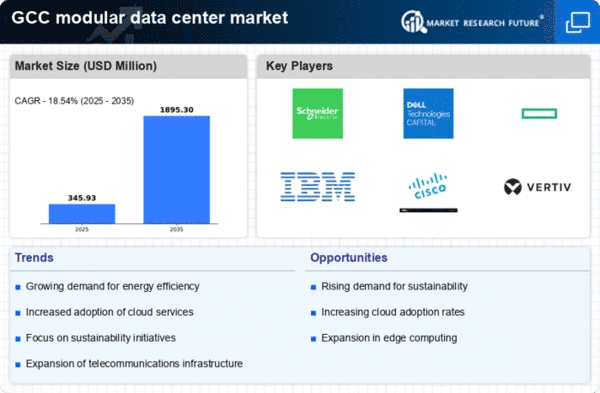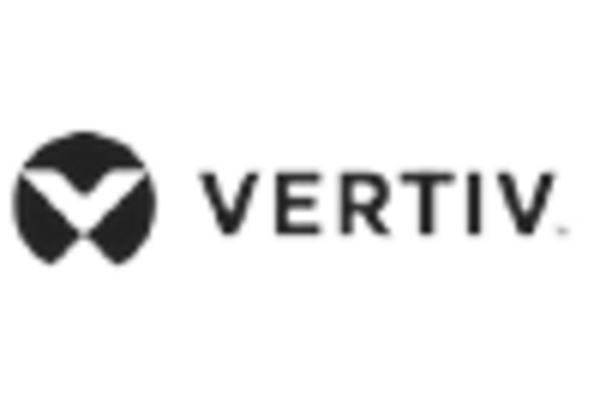Cost Efficiency and Scalability
Cost efficiency remains a pivotal driver for the modular data-center market, particularly in the GCC region where businesses are increasingly focused on optimizing their IT expenditures. Modular data centers offer a scalable solution that allows organizations to expand their infrastructure in a cost-effective manner. By utilizing prefabricated modules, companies can reduce capital expenditures by up to 30% compared to traditional data center builds. This financial advantage is particularly appealing in a competitive market where operational costs are scrutinized. Furthermore, the modular approach enables businesses to align their data center capacity with actual demand, minimizing waste and ensuring that resources are utilized effectively. As a result, the modular data-center market is likely to see continued growth as organizations prioritize financial prudence alongside technological advancement.
Rising Demand for Edge Computing
The modular data center market is experiencing a surge in demand driven by the increasing need for edge computing solutions. As businesses in the GCC region seek to enhance their operational efficiency, the deployment of modular data centers at the edge becomes essential. This trend is particularly evident in sectors such as telecommunications and IoT, where low latency and high-speed data processing are critical. According to recent estimates, the edge computing market in the GCC is projected to grow at a CAGR of over 25% through 2026, indicating a robust opportunity for modular data-center solutions. The ability to quickly deploy these facilities in proximity to data sources allows organizations to optimize their data handling capabilities, thereby propelling the modular data-center market forward.
Support from Government Initiatives
Government initiatives in the GCC region are playing a crucial role in fostering the growth of the modular data-center market. Various national strategies aim to enhance digital infrastructure and promote technological advancements. For example, initiatives focused on smart city developments and digital transformation are creating a favorable environment for modular data centers. These facilities align well with government objectives to improve connectivity and data management capabilities. Additionally, financial incentives and support for green technologies further encourage the adoption of modular solutions. As governments continue to invest in digital infrastructure, the modular data-center market is likely to benefit from increased funding and resources, facilitating its expansion and innovation.
Increased Focus on Energy Efficiency
Energy efficiency is becoming a critical concern for organizations operating within the modular data-center market. In the GCC, where energy costs can be substantial, the demand for energy-efficient solutions is on the rise. Modular data centers are designed with energy-saving technologies that can reduce power consumption by as much as 40% compared to conventional data centers. This focus on sustainability not only helps organizations lower their operational costs but also aligns with broader environmental goals. As regulatory frameworks in the region increasingly emphasize energy conservation, the modular data-center market is likely to benefit from this shift. Companies that adopt energy-efficient practices may also enhance their corporate image, appealing to environmentally conscious consumers and stakeholders.
Technological Integration and Innovation
The modular data-center market is being propelled by rapid technological integration and innovation. In the GCC, advancements in cooling technologies, virtualization, and automation are transforming how data centers operate. Modular designs allow for the seamless incorporation of these technologies, enabling organizations to enhance performance and reliability. For instance, the integration of AI-driven management systems can optimize resource allocation and predictive maintenance, reducing downtime and operational inefficiencies. As businesses increasingly adopt these innovative solutions, the modular data-center market is expected to expand significantly. The ability to quickly adapt to technological changes positions modular data centers as a preferred choice for organizations looking to stay competitive in a fast-evolving digital landscape.
















